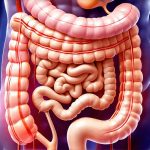Maintaining a regular bowel rhythm is often overlooked in discussions about overall health and wellbeing, yet it’s fundamental to feeling your best. Many people experience occasional constipation or irregularity, but chronic issues can significantly impact quality of life, leading to discomfort, bloating, and even more serious health concerns over time. A healthy digestive system isn’t just about what you don’t have – it’s about fostering an environment where beneficial gut bacteria thrive, nutrients are efficiently absorbed, and waste is eliminated smoothly and predictably. This article will explore practical, daily habits that can gently encourage a consistent bowel rhythm, focusing on lifestyle adjustments rather than quick fixes.
The key to establishing regularity isn’t necessarily forcing more frequent movements, but understanding the interconnectedness of factors influencing digestion. These include diet, hydration, physical activity, stress management, and even your body’s natural circadian rhythms. It’s about creating a holistic approach that supports your digestive system naturally, rather than relying on laxatives or other interventions which can disrupt the delicate balance within your gut. Building these habits isn’t about strict adherence to rules; it’s about incorporating small, sustainable changes into your daily routine for long-term benefit and improved wellbeing.
Dietary Foundations for Bowel Regularity
Diet plays arguably the most significant role in bowel health. A diet lacking in fiber is a primary culprit behind constipation and irregularity. Fiber adds bulk to stool, making it easier to pass, and also provides nourishment for beneficial gut bacteria. Soluble fiber, found in oats, beans, apples, and citrus fruits, absorbs water, forming a gel-like substance that softens stool. Insoluble fiber, present in whole grains, vegetables like broccoli, and bran, adds bulk without absorbing much water – both types are essential. Aiming for 25-30 grams of fiber per day is generally recommended, but increasing your intake gradually is vital to avoid bloating or discomfort.
Beyond just the amount of fiber, the source matters too. Processed foods, even those labeled “high in fiber”, often lack the diversity and natural nutrients found in whole foods. Focus on incorporating a wide variety of plant-based foods into your diet – different fruits, vegetables, legumes, and grains provide different types of fiber and beneficial compounds that support overall gut health. Consider exploring fermented foods like yogurt (with live cultures), kefir, sauerkraut, and kimchi; these introduce probiotics, which are beneficial bacteria that can help balance the gut microbiome.
Finally, paying attention to food sensitivities can be crucial. Some individuals find that certain foods – such as dairy, gluten, or specific vegetables – contribute to digestive upset and irregularity. Identifying and minimizing consumption of these trigger foods can significantly improve bowel function. A food diary can be incredibly helpful in identifying potential sensitivities.
The Importance of Hydration
Water is essential for all bodily functions, and digestion is no exception. Dehydration can lead to hard, difficult-to-pass stools, exacerbating constipation. Many people unknowingly mistake thirst for hunger, leading them to eat when they actually need water. A general guideline is to drink at least eight glasses of water per day, but individual needs vary based on activity level, climate, and overall health.
- Carry a reusable water bottle with you throughout the day as a visual reminder to stay hydrated.
- Drink water before, during, and after meals.
- Choose water over sugary drinks, which can actually contribute to dehydration.
- Pay attention to your body’s signals of thirst – don’t wait until you feel parched to drink.
Beyond plain water, incorporating hydrating foods into your diet can also help. Fruits and vegetables with high water content, such as watermelon, cucumbers, oranges, and lettuce, contribute to overall hydration levels. Herbal teas, particularly those without caffeine, can also be a refreshing and hydrating option. Remember that adequate hydration isn’t just about quantity; it’s about consistency throughout the day.
Movement & Bowel Function
Physical activity is frequently underestimated as a factor in digestive health. Exercise stimulates the muscles of the intestines, helping to move waste through the digestive tract more efficiently. Regular physical activity doesn’t necessarily mean intense workouts – even moderate exercise, like walking, swimming, or yoga, can make a significant difference. Aim for at least 30 minutes of moderate-intensity exercise most days of the week.
The benefits extend beyond just muscle stimulation. Exercise helps reduce stress, which is another major contributor to digestive issues (as discussed below). It also improves blood flow to the gut, enhancing its overall function. Consider incorporating movement into your daily routine in ways that you enjoy – take the stairs instead of the elevator, walk during your lunch break, or dance to your favorite music.
Stress Management & Digestive Wellbeing
The gut and brain are intimately connected through what’s known as the gut-brain axis. Stress can significantly impact digestive function, often leading to constipation, diarrhea, bloating, and other gastrointestinal symptoms. When you’re stressed, your body releases cortisol, a stress hormone that can disrupt normal bowel movements. Chronic stress can even alter the composition of your gut microbiome, further exacerbating digestive issues.
- Practice relaxation techniques such as deep breathing exercises, meditation, or yoga.
- Prioritize sleep – aim for 7-8 hours of quality sleep per night.
- Engage in activities that you enjoy and find relaxing, such as reading, spending time in nature, or listening to music.
- Consider mindfulness practices to help manage stress levels throughout the day.
Developing healthy coping mechanisms for stress is vital not only for digestive health but also for overall wellbeing. It’s about creating a lifestyle that minimizes stressors and incorporates regular opportunities for relaxation and self-care. Remember, prioritizing mental wellbeing directly supports physical health, including a regular bowel rhythm.
These habits, when consistently integrated into daily life, can offer significant improvement in bowel regularity and contribute to improved digestive health and overall well-being.


















